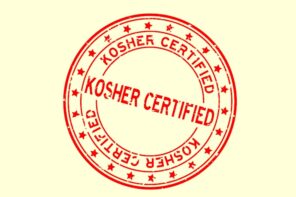The cabinet on Sunday unanimously passed a resolution completely rejecting the UN decision Thursday to upgrade the Palestinians to non-state observer status. “The Jewish people have natural, historical and legal rights to its homeland with its eternal capital Jerusalem,” the resolution stated. –Jerusalem Post, Dec. 2, 2012
Khaled Meshaal, the Hamas leader in exile, has rejected any concessions over a future Palestine state at a rally marking the 25th anniversary of the armed Palestinian group… “Palestine is our land and nation from the [Mediterranean] sea to the [Jordan] river, from north to south, and we cannot cede an inch or any part of it,” he said. –Al Jazeera, Dec. 9, 2012
Last week B’nai Jeshurun (a.k.a. BJ), an independent progressive synagogue in Manhattan, made the front page of the New York Times after its leadership sent a membership-wide email applauding the UN vote granting Palestinians non-member “state” status. While it predictably met with mixed reactions, it became the most visible American synagogue to break ranks with the pro-Israel lobby protesting the UN vote.
A few days later the Reform Movement issued a statement criticizing the Israeli government’s decision to revive settlement construction in the E1 area of the West Bank. This has long been considered a “red line” by the U.S. and other states friendly to Israel in that it would geographically make a two-state solution (with East Jerusalem as the Palestinian capital) impossible.
Back in November, in a Times of Israel blog post, Rabbi Dr. Daniel Gordis, Senior Vice-president of the Shalem Center in Jerusalem and self-appointed “defender of Israel,” penned a scathing critique of a letter written by Rabbi Sharon Brous to her congregation IKAR in Los Angeles. Brous, Gordis’ former student, had “dared” to express sympathy and concern for Gazan civilian casualties of Israeli air strikes as she had for Israeli victims of Palestinian rocket fire. “At the same time, supporting Israel’s right to protect and defend itself does not diminish the reality that the Palestinian people are also children of God, whose suffering is real and undeniable,” she wrote in a rather temperate acknowledgment of human suffering that apparently crossed a “red line” resulting in Gordis’ accusation that Brous has somehow “abandoned” her people.
These three communiques arguably mark a significant fissure in American Jewish institutional support of Israeli polices and has ignited robust debate among American Jews as to their responsibility and allegiance to Israel as Americans and as Jews. As significant as the criticisms are, each reiterates the love of, and commitment to, Israel as an essential part of American Jewish identity. A number of factors contribute to this commitment, and they’ve shifted over the past few decades. Among the most tangled and oft-cited, however, is the claim, made by both Jews (inside and outside Israel) and Palestinians, that their people have a “historic right” to this contested land.
Theology Won’t Work on the World Stage
In the ongoing debate about the legitimate rights of Israelis (i.e. Jews) and Palestinians to the land both claim as their own, one often hears the term “historic right.” While this idea was promulgated by David Ben Gurion (1886-1973), Israel’s first Prime Minister, he arguably used it in a rhetorical rather than literal manner, one that was a part of his argument for the very legitimacy of the Jewish State in part of the Land of Israel, but not, by definition, the entire “historic” Land of Israel. In a recent talk on his book, The Prime Ministers: An Intimate Narrative of Israeli Leadership, Ambassador Yehuda Avner noted that the phrase “historic right” was brought into sharper relief by Menachem Begin (1913-1992), who used it to argue for a Greater Israel ideology; that is, not only to make a case for a Jewish State, which already existed, but to include much of the “historic” Land of Israel, thus denying the “historic” rights of others.
The “historic right” claim has at least two sources. The first, of course, is the Hebrew Bible and its rabbinic interpretation that bases itself on a divine promise as the fulfillment of the Ancient Israelite covenant. There is, however, an important contextual distinction between the biblical claim and its rabbinic counterpart. The Bible, dictating the fulfillment of the covenant through the Israelite conquest of the land, views this land as the final stage of a promise made to the patriarch Abraham. The Bible is, in fact, a story of the Israelites coming to the land.
The rabbis, however, are living in a diasporic context. For them sovereignty in the land is already a thing of the past and a promise of the future—neither part of their present reality nor, in their minds, the proximate future. They are creating a religion (Judaism) where the land serves as part of the collective imagination linked to a future messianic promise, even if its fulfillment is hoped for on a daily basis as canonized in Maimonides’ “Thirteen Principles of Faith.” While they still place sacred value on the land in its exilic state (i.e. a land ruled by others), collective conquest is not their primary focus. For some of them it may even be a transgression. In any case, we can all this a theological historic right.
There’s also a claim of “historic right” founded on historical memory and continued inhabitance of the land. While this may be based on the Bible as a historical narrative, it is not deeply rooted in the Bible as theology but, closer to Ben Gurion, the Bible as a secular history of the Jews (recall that Ben Gurion wanted to publish a version of the Bible without God’s name).
Adapting the teaching of the Orthodox Israeli philosopher and scientist Yeshayahu Leibowitz (1903-1994), the theological historic right works well as an internal resource for connection to the land in religious practice or national pride, but not as an argument on the international stage. The same holds for the Muslim principle that any land that becomes part of Dar ‘al Islam cannot be relinquished; it may work well as a spiritual resource for connection to a particular land, but not as a “historic right” in the arena of modern nation states.
It Just Isn’t Zionism
What we’re left with then are two legitimate non-theological “historic rights”—one Jewish, one Palestinian—both based on memory and inhabitance that have equal weight in regards to the question of nation states (Israel and/or Palestine). Who was there first or who was there longer is irrelevant as both were there long enough to legitimately make this kind of non-theological historic claim.
What has become popular in contemporary Zionist discourse, now arguably dominated by the Religious Zionism of Abraham Isaac Kook (even by those who are not his followers, nor even necessarily religious), is a historic claim founded on theological principles that views possession of the land as a pre-requisite for the coming of the messiah. While Begin may have ignited this impulse, or given it legitimacy in his declaration of Israel’s historic right to “Greater Israel,” Begin’s claim was not messianic, arguably occupying a place between the secular Ben Gurion and the theological teachings of Kook’s son, Rabbi Zvi Yehuda Kook, the architect of National Religious Zionism. Nevertheless, while this position fuels passion among many contemporary Zionists, it does not have, nor should it have, any purchase on the world stage. One cannot generalize and universalize an internal theological claim as an argument for denying the equally legitimate non-theological historical rights of others.
The theological claim of “historic right” is embodied in the views of the followers of the teachings of Rabbi Zvi Yehuda Kook, and in the ultra-Orthodox Satmar position of Rabbi Joel Teitelbaum, both of which are anti-Zionist, at least in terms of how Zionism was framed by its numerous founders (contemporary Chabad Hasidism occupies a position in-between). Although Kook and Teitelbaum come to opposite conclusions—Kook an active postmillennial messianist, believed sole possession of the land was a pre-requisite or sign of the messiah, while Teitelbaum, a passive premillennial messianist, believed remaining in the Diaspora until being redeemed by divine fiat was the will of God—each founds his position on theological claims they garner from the Bible and its classic interpreters.
Yet each tacitly rejects precisely what Zionism espoused; the normalization of the Jewish people by becoming a member of the international community of nation states. Zionism can use a theological reading of Hebrew Scripture to deepen the commitment of its constituency but it cannot make that the basis of its “historic right” to the land on the international stage, especially when that right is countered by another community with an equally legitimate, non-theological historic right (i.e., historical memory and inhabitance). For the purposes of negotiation, then, Jews and Palestinians possess an equal non-theological historic right to this contested land. Everything else should be labeled “for internal use only.”
The three instances mentioned at the outset may or may not point to a definitive shift in the way American Jews understand the complex relationship between their commitment to Zionism and the policies of a Jewish State they love but often disagree with. The “pro-Israel” camp would like to collapse the two, arguing that one’s Zionist credentials are determined exclusively by one’s uncritical support of Israeli policies (and often basing that support on a “historic right” that ignores the equally valid “historic right” of the Palestinian people), but the American Jewish community may well be considering alternatives.




